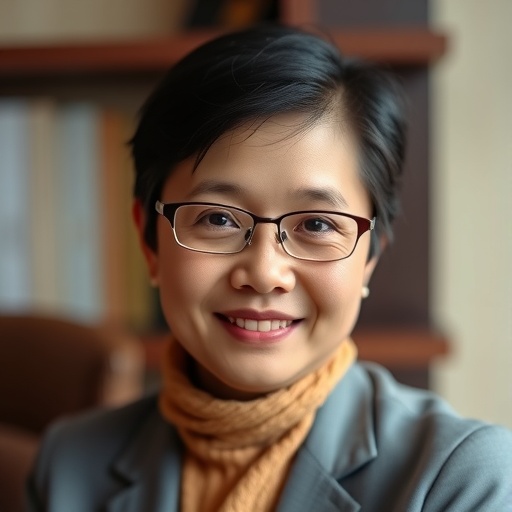In the relentless pursuit of global health equity, certain individuals emerge whose dedication and sacrifice create ripples far beyond their immediate communities. Doctor Junqiao Zhang’s life and work epitomize such a legacy—a profound commitment to fostering healthcare collaboration between China and Africa that continues to inspire. Zhang’s story is one of selflessness, innovation, and a vision that transcended national boundaries, galvanizing a bilateral relationship that holds promise for tackling some of the most entrenched health challenges of our time.
From the early days of his medical career, Zhang demonstrated an unwavering focus on infectious diseases that disproportionately affect under-resourced regions. His choice to dedicate his efforts to Africa—a continent grappling with a heavy burden of communicable illnesses—stemmed from a recognition that global health security depends on collaborative, cross-continental solutions. This ethos propelled Zhang to bridge gaps between institutions, advocating for knowledge exchange, capacity building, and sustainable health interventions.
Technical collaboration under Zhang’s stewardship was characterized by the integration of cutting-edge Chinese medical technology with Africa’s diverse epidemiological landscape. Under his guidance, programs implemented advanced diagnostic tools and rapid response systems tailored to African settings. These technologies included multiplex polymerase chain reaction (PCR) platforms for simultaneous detection of pathogens, and portable imaging devices powered by artificial intelligence algorithms designed to aid frontline health workers in resource-limited environments.
Zhang’s work extended into the realm of vaccine research and development, utilizing genomic surveillance data to monitor pathogen evolution across different African regions. He championed the deployment of genomic sequencing technologies, enabling real-time tracking of viral mutations. This approach proved crucial during localized outbreaks of diseases such as Ebola, Lassa fever, and novel influenza strains, facilitating tailored vaccine design and timely immunization strategies.
Beyond technology, Zhang’s efforts laid significant groundwork for capacity enhancement among African healthcare professionals. He initiated training programs focusing on epidemiology, bioinformatics, and clinical management of infectious diseases. These programs, often conducted in partnership with African universities and research centers, utilized blended learning models combining in-person workshops with digital platforms to overcome geographical barriers.
A pivotal component of Zhang’s legacy is the establishment of a Sino-African Health Research Consortium, which institutionalized bilateral knowledge sharing and joint project implementation. This consortium has proven instrumental in conducting multicentric studies on neglected tropical diseases, drug-resistant infections, and chronic diseases emerging alongside infectious disease burdens. It also served as a forum for policy dialogue, helping align national strategies with regional health priorities.
Zhang’s vision of sustainable cooperation encompassed infrastructure development, leading to the establishment of several biosafety level-3 laboratories across African partner countries. These laboratories meet international safety standards for handling high-risk pathogens and are equipped for molecular diagnostics and vaccine development. This infrastructure significantly enhanced local capacity to conduct independent research and respond rapidly to emerging health threats.
Importantly, Zhang was a fervent advocate of data-driven policy making in global health. By promoting standardized data collection protocols and interoperable health information systems, his initiatives improved surveillance accuracy and enabled evidence-based decision making. The enhanced data infrastructure supported not only infectious disease control but also broader health system strengthening, facilitating resource allocation and epidemic preparedness.
Zhang’s influence extended to health diplomacy, where he skillfully navigated the complexities of international cooperation. His ability to build trust among diverse stakeholders—including government agencies, non-governmental organizations, and local communities—was key to sustaining multi-sectoral partnerships. His approach emphasized mutual respect, transparency, and shared goals, departing from traditional paradigms of donor-recipient dynamics toward genuine collaboration.
The culmination of Zhang’s lifelong dedication tragically arrived when he succumbed while responding to an outbreak in East Africa. However, his passing underscored the profound risks taken by frontline researchers and healthcare workers in epidemic settings, reinforcing global call-to-action for better protection measures and investment in frontline defense capacities.
Zhang’s legacy sheds light on the critical role of cross-border scientific collaboration in global health security. His model demonstrates that health challenges—unbound by geography—require coordinated international responses harnessing complementary strengths. The synthesis of Chinese technological innovation with African local expertise stands as a blueprint for the future of global health partnerships.
Moreover, Zhang’s life underscores the ethical imperatives central to global health research: humility, solidarity, and an unwavering focus on the most vulnerable populations. His contributions remind the scientific community that beyond data, technology, and policy, transformational change is driven by personal commitment and human connection.
In the context of China-Africa relations, Zhang’s work represents a new chapter that redefines the terms of engagement—moving beyond infrastructural investments to co-creation of knowledge, capacity, and systems resilient to future epidemics. The health cooperation mechanisms he established pave the way for enduring impact, addressing not only infectious diseases but also the broader determinants of health amid rapid societal changes in Africa.
As global health challenges continue to evolve with factors such as climate change, urbanization, and antimicrobial resistance, Zhang’s model of integrated, multi-disciplinary, and equitable cooperation serves as a beacon. It encourages the mobilization of scientific innovation alongside social accountability, ensuring that advancements translate into tangible health improvements for all.
In remembering Doctor Junqiao Zhang, the global health community honors a pioneer whose life and legacy are interwoven with the health futures of two continents. His work embodies the transformational potential of scientific diplomacy and patient-centered innovation, inspiring current and future generations to push the boundaries of what is achievable in global health.
Subject of Research: Health cooperation and infectious disease control between China and Africa, focusing on collaborative technologies, capacity building, and health diplomacy.
Article Title: The selfless sacrifice of doctor Junqiao Zhang: leaving a lasting legacy in China-Africa health cooperation.
Article References:
Xi, B., Li, H. The selfless sacrifice of doctor Junqiao Zhang: leaving a lasting legacy in China- Africa health cooperation.
glob health res policy 10, 39 (2025). https://doi.org/10.1186/s41256-025-00446-6
Image Credits: AI Generated




